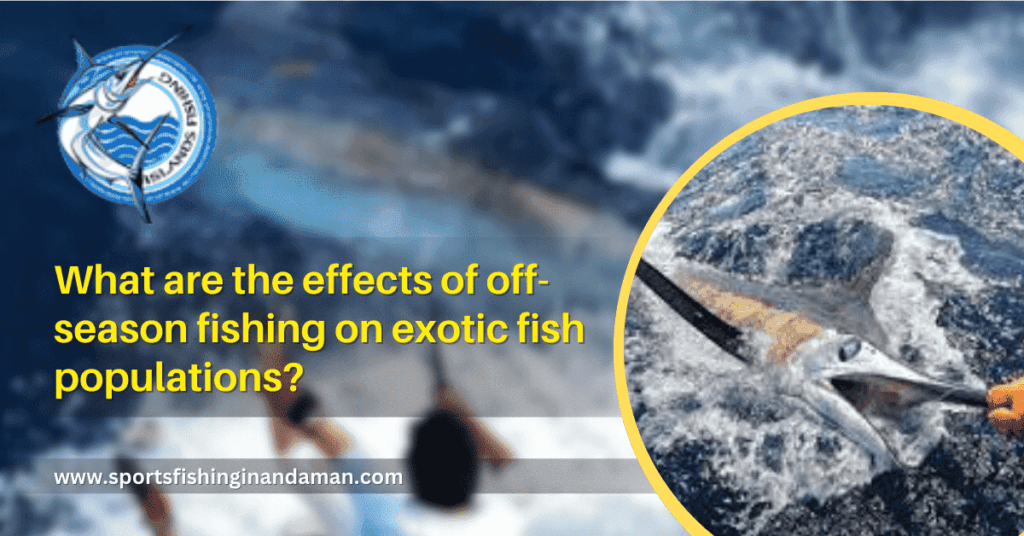Off-season fishing can have a significant impact on the population of exotic fish in several ways:
Disrupting Breeding Cycles
Off-season fishing can disrupt the natural breeding cycles of exotic fish species. During their reproductive periods, these fish gather in specific areas to spawn and replenish their populations. Excessive fishing during the off-season can lead to a significant reduction in the number of breeding adults, hindering successful reproduction and ultimately decreasing the population size.
Targeting Vulnerable Life Stages
Off-season fishing may unintentionally target vulnerable life stages of exotic fish, such as juveniles or spawning adults. Juveniles are crucial for maintaining healthy populations as they represent the future generation of fish. By targeting them during the off-season, when they are still growing and developing, their numbers can be significantly reduced, negatively impacting the population’s sustainability.
Increased Pressure on Limited Resources
During the off-season, when fish populations are typically lower due to migration or reproductive patterns, increased fishing pressure can occur. As a result, there is higher competition for limited resources, such as food and shelter. This increased pressure can lead to intensified predation, reduced feeding opportunities, and habitat degradation, all of which can negatively affect the overall health and population of exotic fish species.
Decreased Genetic Diversity
Off-season fishing can potentially reduce the genetic diversity within exotic fish populations. Genetic diversity is essential for the long-term viability and adaptability of a species. When certain individuals or specific genetic traits are consistently targeted during off-season fishing, the genetic pool of the population may become limited. Reduced genetic diversity can make the population more susceptible to diseases, environmental changes, and other threats, potentially leading to population declines.
Disruption of Ecosystem Balance
Exotic fish species often play important ecological roles within their respective habitats. They may serve as prey for other species, help control populations of certain organisms, or contribute to nutrient cycling. Off-season fishing can disrupt the natural balance within ecosystems by removing a significant number of exotic fish. This disruption can have cascading effects on other species, leading to imbalances and potentially harming the overall ecosystem health.
To ensure the long-term sustainability and conservation of exotic fish populations, it is crucial to follow fishing regulations and guidelines, including seasonal fishing restrictions, catch limits, and size restrictions. These measures help protect vulnerable life stages, allow for successful reproduction, and maintain the overall health and abundance of exotic fish species.



